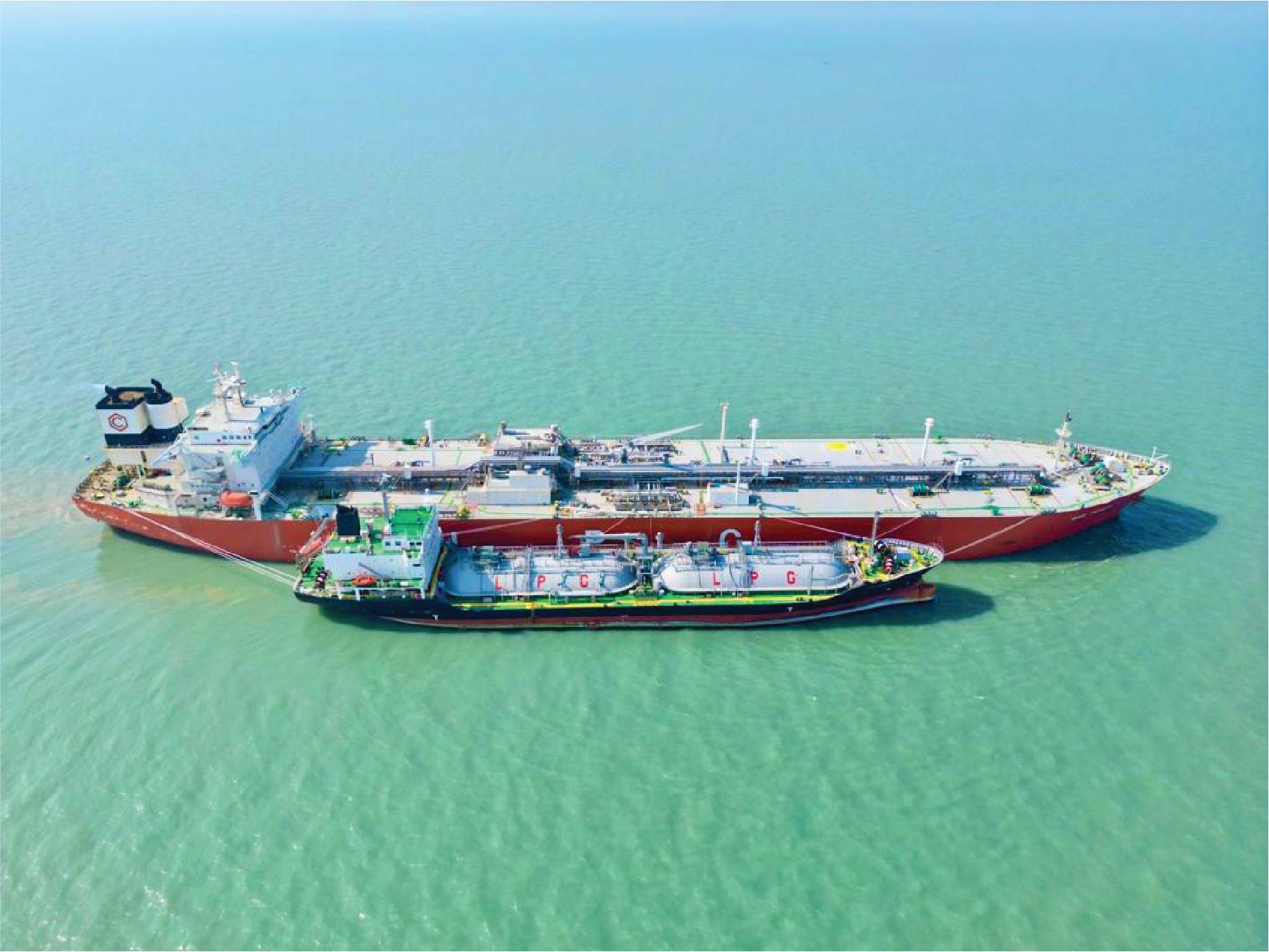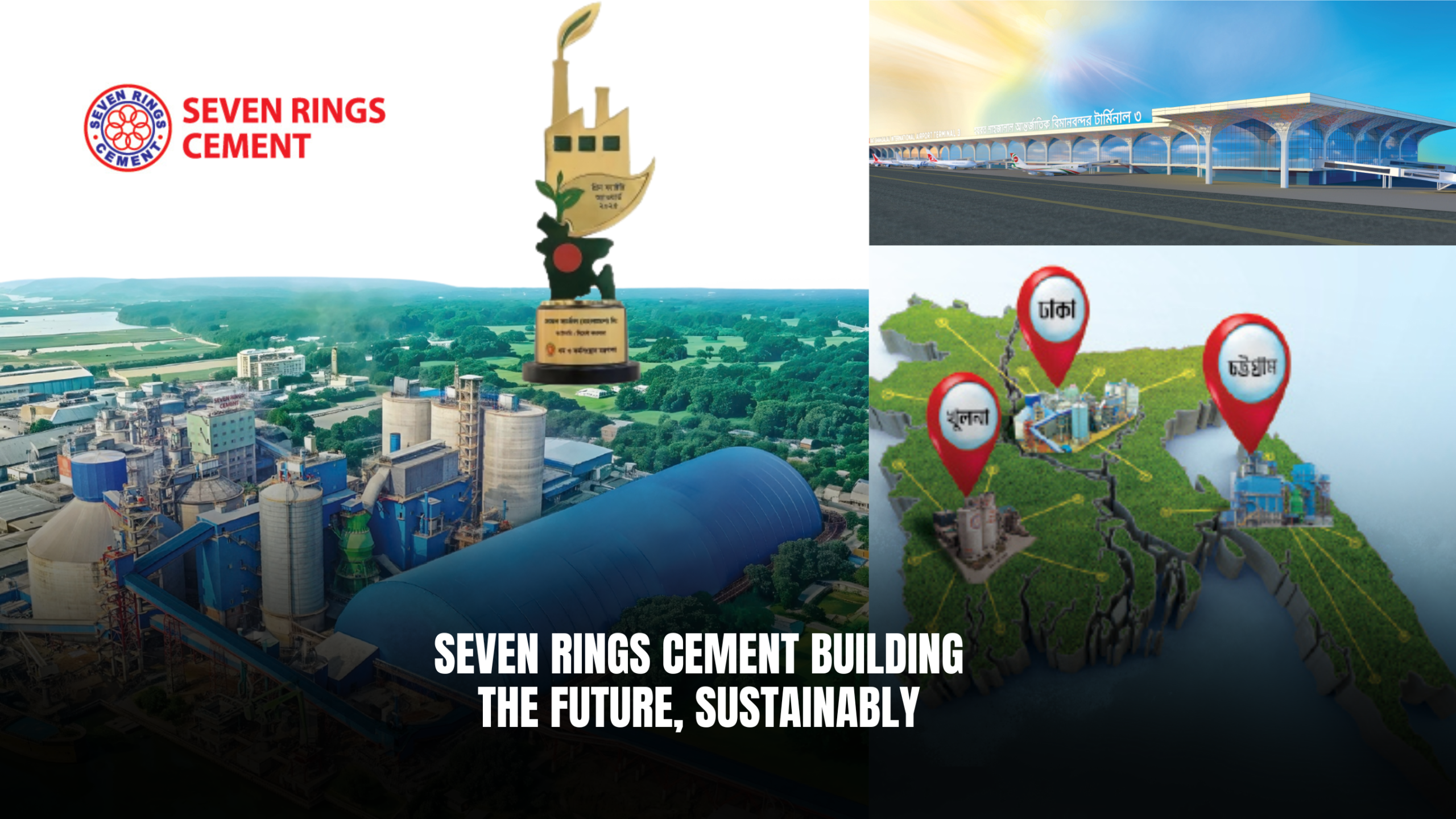
SOLARIC Group installed the world’s largest industrial rooftop solar system in the Korean EPZ of Chattogram in 2020. The company has already completed 120 MWp of rooftop solar projects in the country and has created employment for more than 100 engineers and other professionals. In association with Infrastructure Development Company Limited (IDCOL) through multiple NGO’s, SOLARIC Group supplied more than 5 lakhs solar home systems in villages across the country. The most iconic project that has been developed at KEPZ-50MWp in Chattogram by Youngone Corporation. And, Solaric is the EPC partner of the world’s largest single-site project. They basically started to work with Youngone Corporation in 2019. They already completed 40 MW which will be enhanced to 50 MW by June 2025.

As Bangladesh faces energy crisis, Didar Islam, founder Solaric, tried to learn how to utilize the unutilised rooftops of the industries. Now, different industrialists of ready-made garments (RMG) and textiles, ceramic, plastic, and footwear are eager to use the solar panels on their rooftops. Solaric installed 21 rooftop projects of different companies and organisations from 2015 in industrial zones like Dhaka, Gazipur, Narsingdi, and Savar. Of these, the company installed solar panels on Bangladesh Bank’s rooftop in 2015, Markup Accessories Ltd and Debonair Group in 2018, Youngone Corporation and AKH Group in 2020, IRIS Fabrics, Tasniah Fabrics and Palmal Group in 2021, Khantex Fashion in 2022, BSEZ, Micro Fibre Group, FM Plastic Industries, Coats BD, Amanat Shah Group, Blue Ocean Footwear, and Masco Group in 2023, Ha Meem Group (Phase-2), Mondol Intimates, Checkpoint System, Nexus Sweater Industries and Logos Apparels in 2024. Average investment cost for every megawatt renewable energy is Tk. 10 million.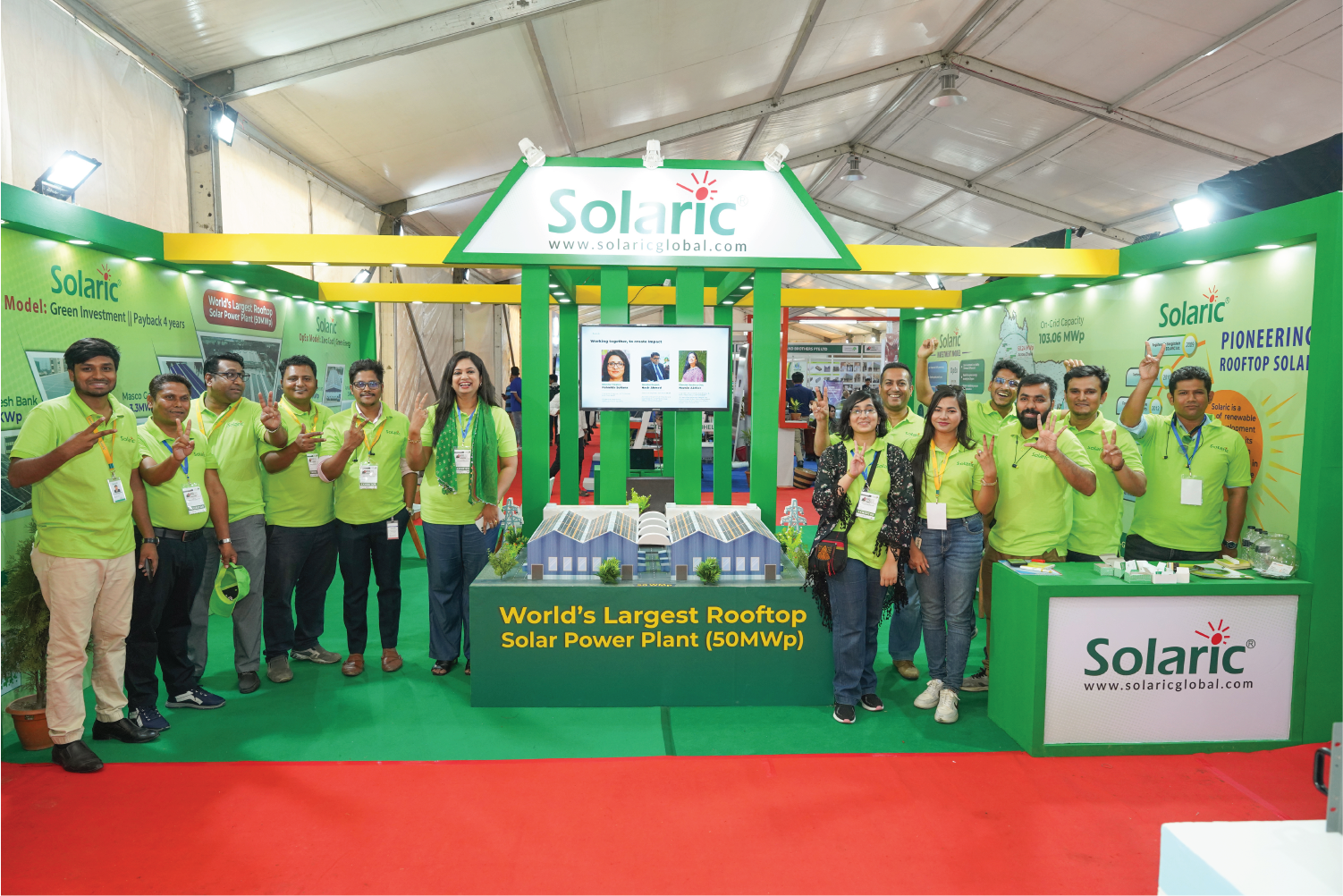
With a vision to resolve the energy crisis in Bangladesh through renewable energy, Solar Intercontinental (Solaric) Limited was founded in early 2009 by Didar Islam, an electrical engineer and a scientist. Didar, also a former teacher at the Bangladesh University of Engineering and Technology (BUET), founded Solaric, a research and development (R&D)-driven technology company in Bangladesh focusing on developing appropriate technologies for both on-grid and off-grid solar applications, and has been awarded nine patents in the USA. The company developed its technology and system in 2010 and went into commercial operation in 2011. In an exclusive interview with Ceramic Bangladesh, the Director of Solaric Group, Engineer Naznin Akther said that Solaric PLE Ltd. is registered in Singapore in 2015 as a group of renewable energy development companies and a subsidiary in Bangladesh to implement large-scale industrial rooftop solar projects based on both CapEx and OpEx models. She, also the younger sister of Didar, said “we are the only solar company in Bangladesh with a private equity investor (OSIRIS), which helps the company grow exponentially by offering industrial rooftop solutions to factory owners with appropriate financial solutions.”
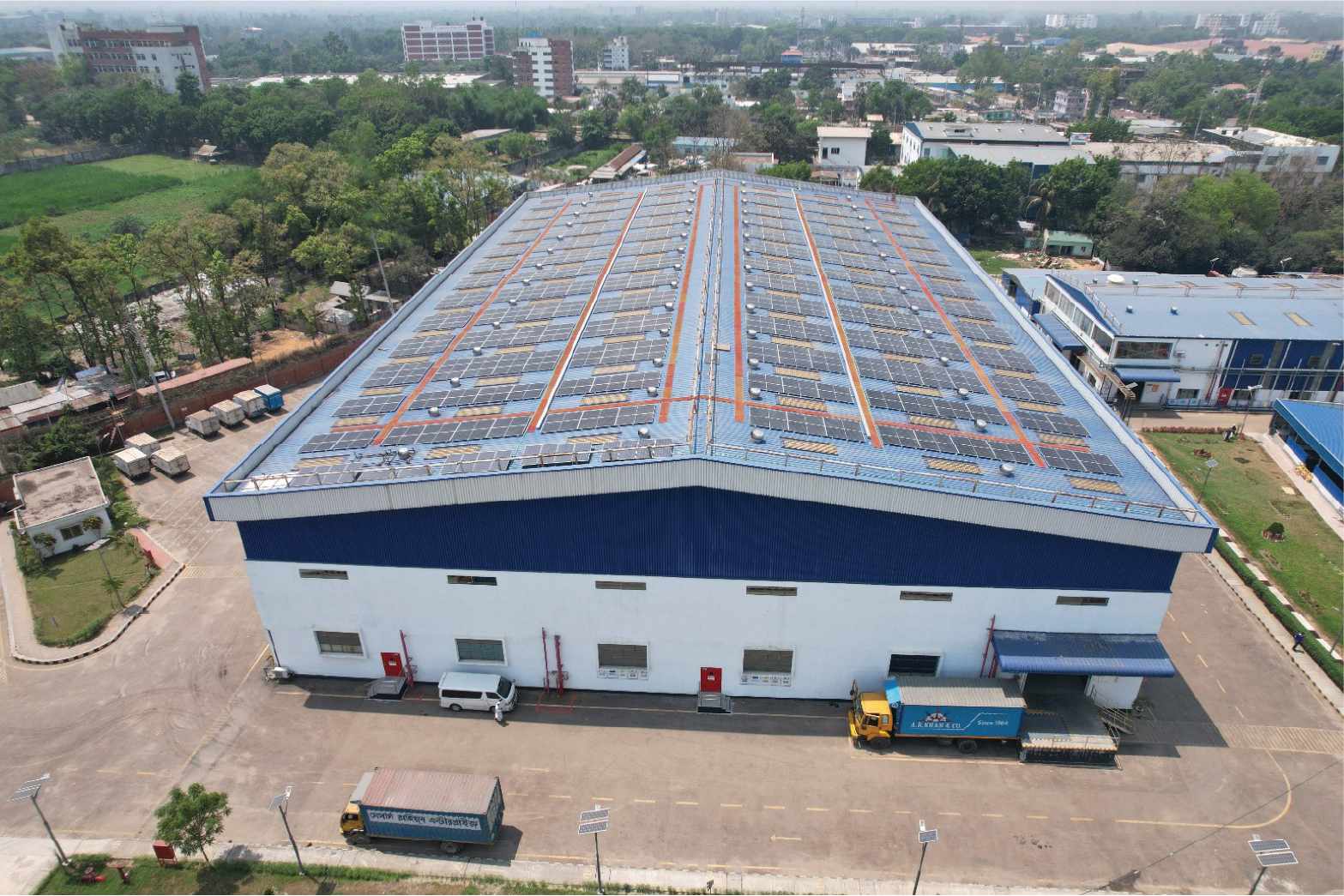
“In 2000, Didar invented the world’s only CMOS single chip radio, known as QWIKRADIO, with 13 US patents. Then, he explored different ways it could be utilised in Bangladesh’s power sector. Later on, he started working on Analog IC design for portable power applications and launched a firm named after Power IC Ltd. with young engineers from BUET,” Naznin also said. She informed that her brother invented the Solar Optimizer, a single device to combine all solar electronics.
Renewable energy solutions for industry
She also informed that the company completed 15 projects on households. Earlier, people used 3% of their demand from rooftop solar following the government rule. But they did not think about the potential of an energy solution. Now they realise that an entire industry’s demand for power supply can be met by solar. In 2018, Solaric installed a 300 KW solar panel through the OpEx model (by own investment) on the rooftop of Debonair Group. Now, they sell electricity to the company. They are now working with 10 big companies, including Palmal Group, Micro Fibre, and Coats BD. “We now have 7.5 MWp in operation under the OpEx model. In addition, 30 MW is coming under the model”, she also informed. “We have developed more than 100 MWp of rooftop solar on-grid power plants with few of them under net metering all over Bangladesh. Under net metering, consumers with solar panels or other renewable energy systems can generate electricity and feed any excess energy back into the grid.
Unlocking Rooftop Renewable Energy Potential
Bangladesh, with its limited land availability, has experienced a surge in demand for rooftop renewable energy (RE). The market potential is substantial, boasting a total capacity of 6000 MW due to the country’s expansive rooftop space. Notably, the agriculture sector significantly contributes to this growing demand. Furthermore, the Mujib Climate Prosperity Plan mandates that industrialists ensure 40% of their energy comes from renewable sources. This commitment aligns with the global push toward sustainable practices and underscores the urgency of transitioning to cleaner energy alternatives. Surprisingly, only 5% of industrial rooftops have been utilized for solar installations, leaving more than 95% of rooftops untapped. Solar energy emerges as the most viable and cost-effective option for RE adoption.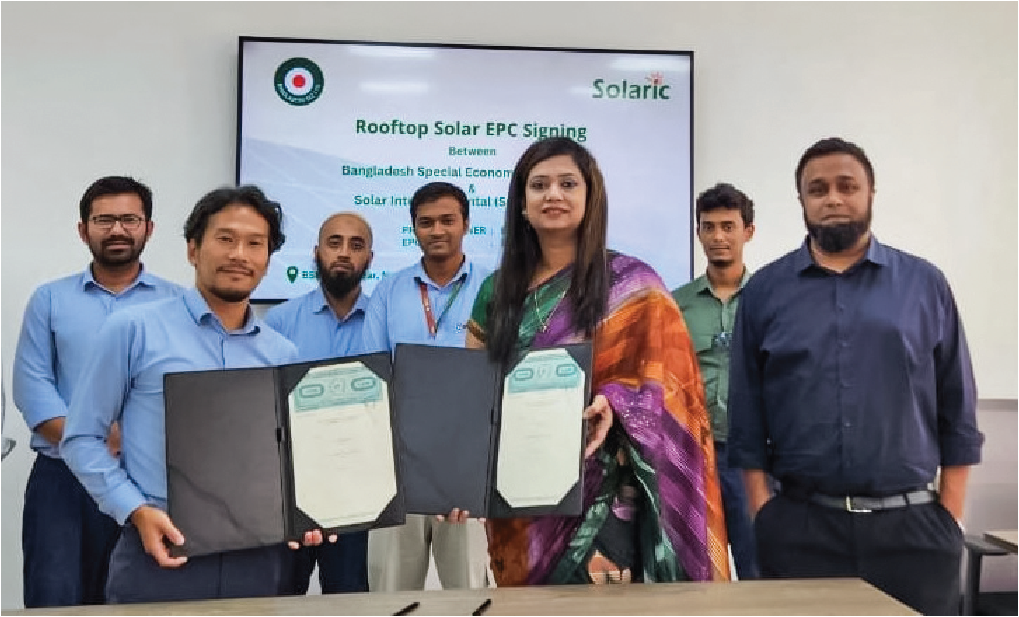
The ceramics industry also holds promise for RE adoption. Several major ceramic companies have engaged in discussions and responded positively. To establish a comprehensive solar project, approximately 15 types of products—such as solar modules, inverters, cables, structures, and communication devices—are essential. However, managing dust risks prevalent in Bangladesh’s cities remains a significant challenge for solar panel. Bangladesh stands at the cusp of a renewable energy revolution, and proactive measures can propel us toward a greener and more sustainable future.
Advantages of Solar Energy Usage
By using solar power, individuals can save up to 15% compared to relying solely on the existing grid. Solar energy provides a green alternative at a lower cost. When the off-peak grid electricity rate stands at Tk 9.75, solar energy can be harnessed at Tk 8.50. A seventy-thousand-square-foot rooftop can accommodate a 1-megawatt solar installation. This capacity translates to generating power equivalent to Tk 1 million per month. Solar projects typically span 30 years, with a maximum payback period of 5 years. Consequently, users enjoy 25 years of free power usage after recouping their initial investment. In multi-story buildings, 30% of the rooftop space must remain open for solar panels. However, in tin-shed buildings, all available spaces can be utilized effectively, provided they receive clear sunlight. Solar energy not only contributes to environmental sustainability but also offers financial advantages and long-term energy independence.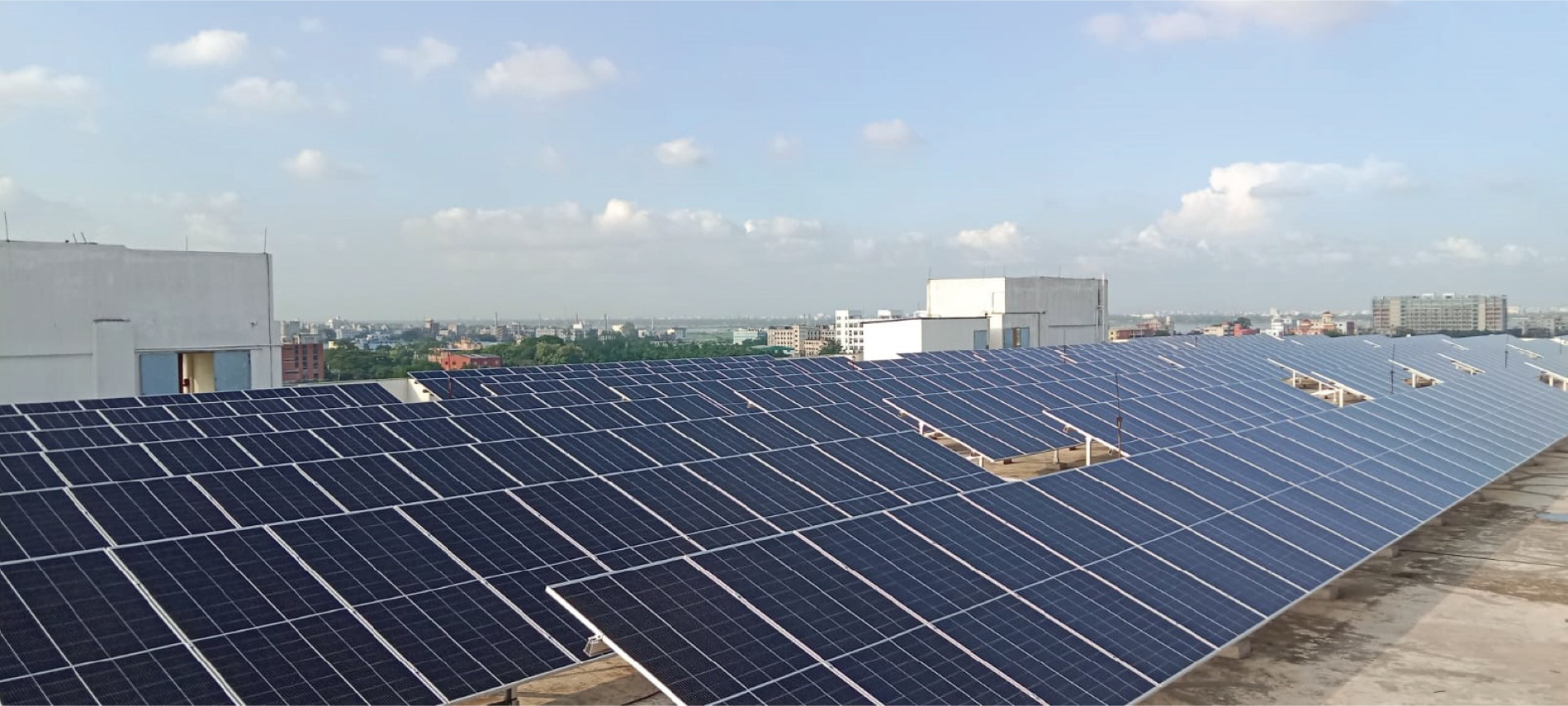
Challenges and Recommendations
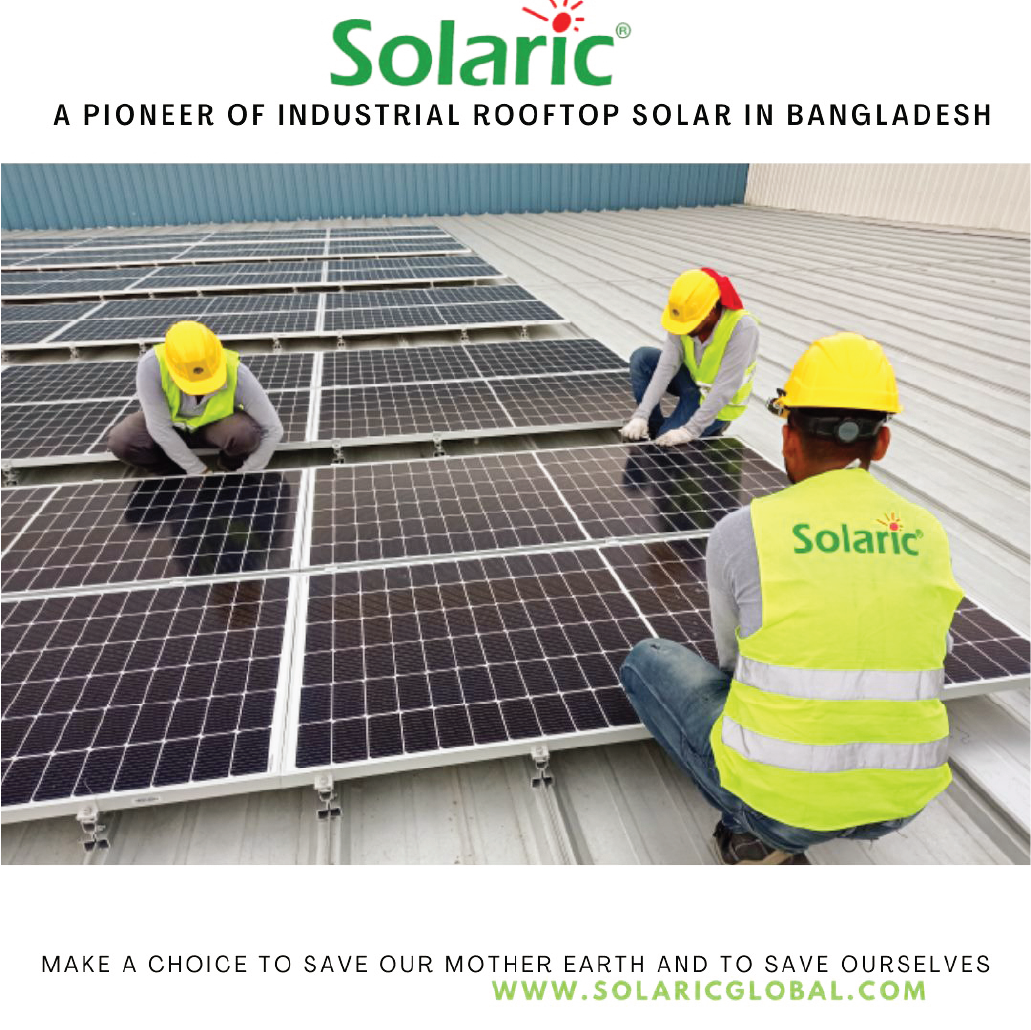
Bangladesh faces several challenges in promoting rooftop solar energy adoption. Among these barriers are lack of consumer awareness, substandard products and high import duties. High import duties on quality solar equipment hinder affordability. Quality solar products are essential for long-term performance. Additionally, there is a cap on rooftop solar system capacity, limiting its potential. Accessing affordable financing for solar projects is the most difficult aspect. Overcoming financial barriers requires innovative solutions. A lack of technology and maintenance planning affects system efficiency. Dust accumulation reduces energy generation, emphasizing the need for regular cleaning. Maintenance services from reliable companies are equally critical. A sudden cloud cover can significantly reduce power generation, necessitating extensive battery support to maintain a stable power supply. “Policymakers should provide robust support to boost rooftop solar adoption. Expanding net metering to 100% from the existing 70% would encourage more users. Solar equipment should be prioritized for smooth import procedures. But, LC opening has been creating challenges now. The National Board of Revenue (NBR) should consider reducing taxes on solar plant equipment. Companies like SOLARIC, with equity investment from abroad, play a vital role. SOLARIC aims for over 400 MWp of rooftop solar installations and plans further expansion by 2026”, told Naznin.
Written by Rafik Hasan





